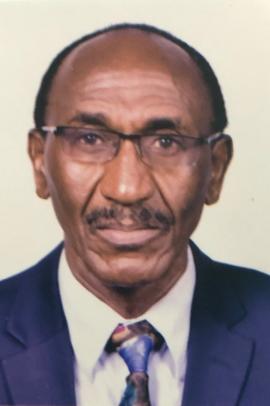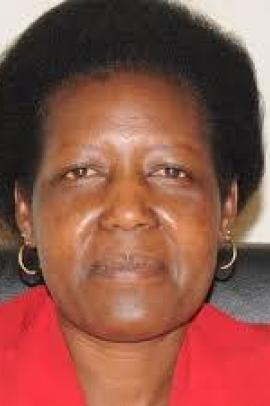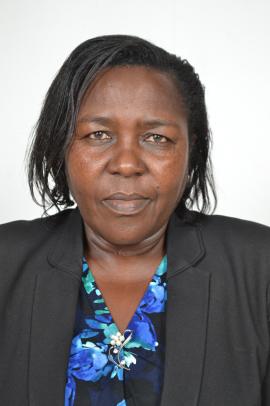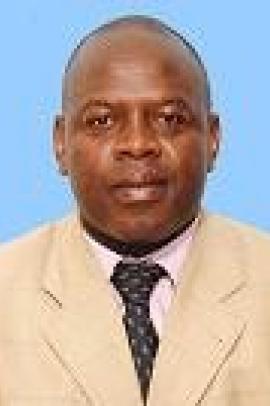Mr. David Otieno Maganya has an outstanding academic background with a wealth of transferable skills. He is currently working as a Project Manager for Chuodho Community Development Organization, an implementing partner for Amref Health Africa’s Kenya Sanitation and Hygiene Improvement Programme (K-SHIP)-WSSCC/GSF funded Project. He also doubles up as the Honorary Secretary for Rural Integrated Poultry Marketing Cooperative Society (RIPMCs) being supported by National Agricultural and Rural Inclusive Growth Project (NARIGP) World Bank Project and County Government of Migori Department of Agriculture. Previously, David worked as a Project Officer in a 4-year Nyatike Water and Sanitation Project funded by Community Development Trust Fund (CDTF) with financial support from The Royal Danish Embassy. David holds a Bachelor Degree in Education (Arts) from Moi University and has over the years been passionate in Water, Sanitation and Hygiene projects spanning over 10 years. Prior to this, David worked as a lecturer for 3 years handling students pursuing Diploma in Early Childhood Development and Education (ECDE). He exposed students to Research Methods and Language Skills and presented a number of learners through the Kenya National Examination Council (KNEC) examined course.
He is adept at applying analytical problem-solving and planning capabilities to develop innovative and creative solutions to problems and to manage projects from conception through to successful completion. A success-driven individual with the ability to perform in highly pressurized and challenging working environments, offering a significant contribution whether operating independently or leading an efficient and productive team. David loves reading, making friends and charity work. He is the President of the Rotary Club of Suna-Migori for the year 2020/21.

INFLUENCE OF COMMUNITY DEVELOPMENT TRUST FUND PROGRAMME ON IMPLEMENTATION OF COMMUNITY ENVIRONMENTAL FACILITY PROJECTS IN MIGORI COUNTY
Non-governmental organizations (NGOs) in developing countries rely heavily on foreign donor funding and potential over-reliance on donors becomes apparent. The issue of the governance and accountability of environmental non-government organizations (ENGOs) is gaining in prominence in academic and public discourse. Ideally, each sector of society should be characterized by a distinct accountability regime, but faced with calls for greater accountability there is a risk that ENGOs might apply accountability regimes uncritically from the business or private sector. This could undermine the independent change-agent role of ENGOs and therefore weaken aspects of the democratic system. The main objective of the study was to establish the influence of community development trust fund programme on implementation of environmental projects. This study was guided by the following specific objectives; To establish how community development trust fund programme influence socio- cultural status of beneficiaries on implementation of environmental projects. To determine how community development trust fund programme influence the socio- economic status of beneficiaries on implementation of environmental projects. To examine how community development trust fund programme influence empowerment of Primary Stakeholders on implementation of environmental projects. To assess how community development trust fund programme influence sustainable livelihoods on implementation of environmental projects. This study adopted a descriptive survey research design. Descriptive Surveys are suitable in gathering data whose intention is to describe the nature of the existing condition. The study used purposive sampling method. Data collection was from two main sources; primary and secondary. In using Primary sources, data was collected from selected respondents using Focused Group Discussions guides, Key Informant Interview Guides, Observation list and Household Questionnaires. Secondary sources included relevant documents and reports. Qualitative data from FGD and KII was analyzed according to the emerging themes and sub themes this was through selection of similar statements hence qualitative findings were synchronized with quantitative findings. Quantitative data was coded to be entered into database and analyzed through descriptive statistics (frequency, percentages, mean, and range) was used to describe the population. This was presented in textual form and tables. The Statistical Package for the Social Sciences (SPSS) version 20 computer software was used for analysis of quantitative data.Chi-square tests enabled the researcher to compare observed and expected frequencies objectively. Results of the data analysis was presented using frequency distribution tables. The main findings showed that most (50%) of the projects in the County were established as “Self-help Groups” followed by 35% established as “Women Groups. These findings show that most of the projects are started out of a mutual help or aid spirit by the focus groups in Migori County. Women in Migori County are at the forefront in the formation and implementation of community environmental facility projects compared to men. The research study concludes that majority of the community members participated in the decision-making process especially at the development stage, which is the most critical stage in project design and implementation. The study, therefore, recommended that women and youth be fully involved in development projects through effective and efficient participation and monitoring of the initiated programs in their communities.





